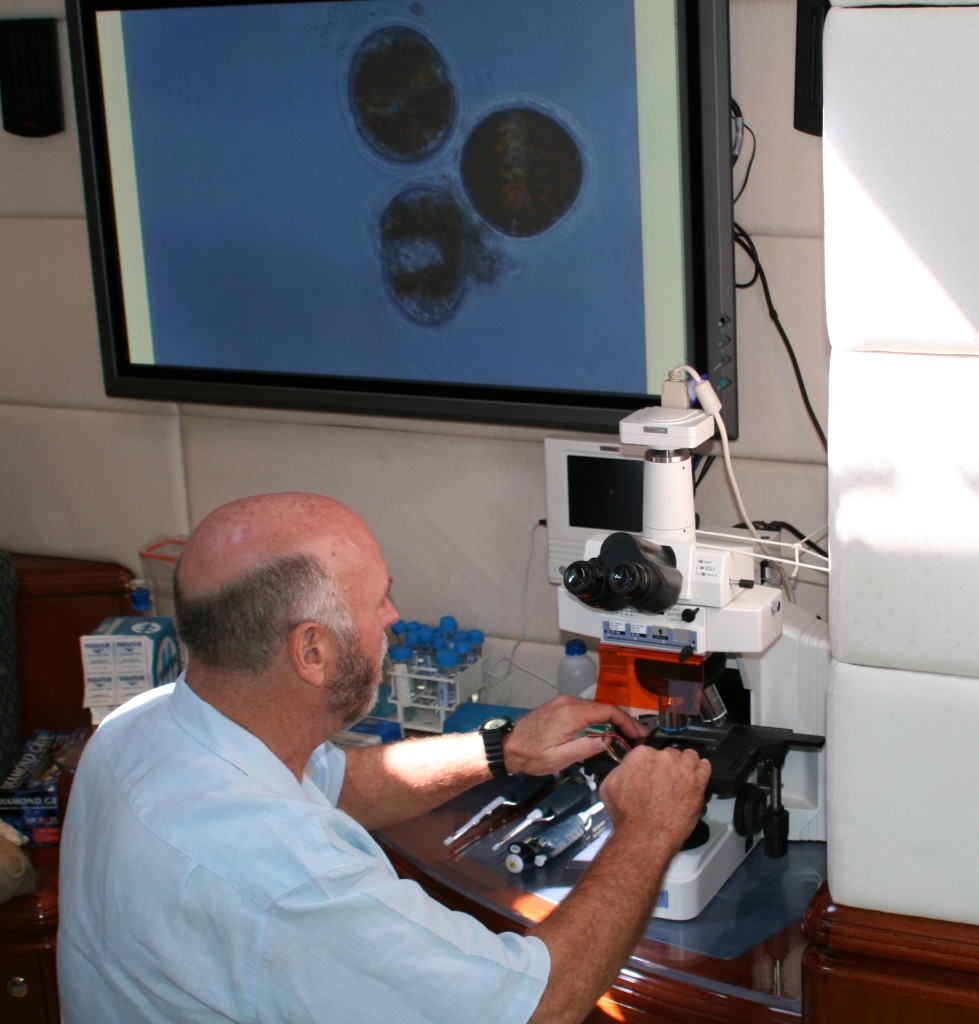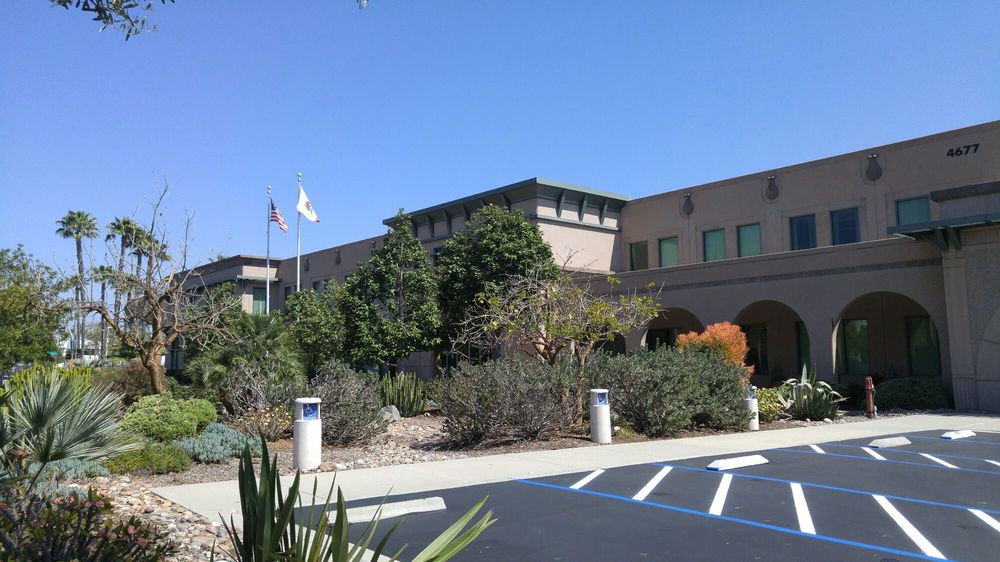Daily Business Report-July 20, 2016
Workers at a supermarket in California. Image courtesy of Bag the Ban.
San Diego City Council Approves
Ban on Plastic Shopping Bags
By City News Service
A ban on plastic shopping bags was tentatively approved by the San Diego City Council Tuesday, making it the 150th jurisdiction in the state of California to pass such a law.
The Single Use Carryout Bag Reduction Ordinance was passed 6-3, with Councilmen Scott Sherman, Mark Kersey and Chris Cate casting the dissenting votes.
“San Diego can now take a leadership role in limiting plastic bag use and reducing plastic pollution,” Council President Sherri Lightner said. “As we can see from other cities, the benefits are real, and it can be done without burdening our businesses or our most vulnerable residents.”
More than 20 community members urged the council to approve the ban. There were only two speakers against the ordinance.
“The vast majority of plastic bags we see are entangled in the brushes next to our rivers and streams. After every rain event, these bags clog and choke our city’s already damaged waterways,” said Kristin Kuhn of San Diego Coastkeeper. “During especially high rainfall events, these bags are pushed out of our inland environments straight to the ocean or bay.”
The ordinance is intended to help reduce the estimated 700 million single-use plastic bags that are distributed in San Diego each year. Around 3 percent of the plastic bags used each year in California are being recycled.
“I think us doing this now doesn’t really solve anything and it doesn’t really accomplish anything,” Kersey said, referring to a statewide plastic bag ban proposition that is expected to pass in November.
The city’s plastic bag reduction ordinance includes a ban on all single-use carryout plastic bags at select point-of-sale retail locations; a 10-cent charge for paper bags; exemptions for restaurants, newspaper delivery and bags for transporting produce, meat, poultry, dry-cleaning or laundry; and exemptions for those participating in the California Special Supplemental Food Program for Women, Infants and Children.
Nonprofit vendors are exempt for the first year. There’s a six-month grace period before enactment for pharmacy and grocery retail locations, and a one-year grace period for all others.
The measure provides for outreach and education by the city’s Environmental Services Department and the development of a program designed to secure sponsorships from local organizations and businesses to provide reusable bags to low-income families.
If approved on second reading in two weeks, the ordinance would go into effect 30 to 40 days later.
“We want to see fewer plastic bags in the landfill(s), as well as a cleaner landscape citywide,” Mario Sierra, director of the city’s environmental services department, said in his presentation to the council.
“This includes making sure our waterways, our creeks and storm drains are not polluted with plastic bags,” Sierra said. “The city will continue to encourage all San Diegans to reduce, reuse and recycle as much as possible.”
Groups supporting the ordinance include the San Diego Regional Chamber of Commerce, California Grocers Association, Californians Against Waste, Environment California, Surfrider Foundation, San Diego Coastkeeper, the League of Women Voters of San Diego, Sierra Club of San Diego, Plastic Pollution Coalition, Equinox Project, Ocean Beach Town Council, the Center for Biological Diversity and Save Our Shores.
_____________________________________________

Diving in Deep
Venter Team Reports Sequencing
Genomes of 10,500 People
GenomeWeb
Craig Venter’s team has deeply sequenced the genomes of some 10,500 people, as it reports in a preprint at bioRxiv. Each person was sequenced to a depth of between 30X and 40X coverage, and the team reported that 84 percent of an individual’s genome could be sequenced with confidence — that region, it notes, included more than 95 percent known pathogenic variant loci.
The J. Craig Venter Institute and Human Longevity team also uncovered more than 150 million variants, more than half of which hadn’t been previously seen. This works out to an average of 8,579 novel variants found per person. This and other data collected enabled the researchers to gauge how tolerant different regions of the genome are to genetic change. Intolerant sites, they noted, might be “essential for life or health.”
Hudson Freeze from Sanford Burnham Prebys Medical Discovery Institute tells the San Diego Union-Tribune that this is the first study he knows of to have examined so many genomes of such quality. “This idea of taking more than 10,000 individual genomes and doing this .. that takes a lot of guts,” Freeze says. “It’s going to be a guy like Craig Venter, who has the moxie, the finances and the know-how to get this done.”
The University of California, San Francisco’s Atul Butte also calls the work “impressive.” He adds that the researchers’ approach to looking at gene families when exploring patterns of genetic families was “innovative.”
The San Diego Union-Tribune notes that Venter declined to speak about the work as it had not yet been through peer review.
Water Board Proposes $4.6M
Penalty Against City of San Diego
By City News Service
A $4.6 million penalty against the city of San Diego was proposed Tuesday by the San Diego Regional Water Quality Control Board for the city’s alleged failure to make sure construction sites did not prevent the pollution of local waterways.
The allegations cover the time period from 2010 to 2015 and affected water bodies stretching across city limits from the Los Penasquitos Lagoon to the north, down to the Tijuana River Estuary to the south, according to water board officials.
“The San Diego Water Board put a lot of resources into collaborative, outcome-focused efforts to protect and restore areas like Los Penasquitos Lagoon and Tijuana River Estuary. Enforcement like this is the result of a major deviation from the expectations we had for those partnerships,” said James Smith, the Water Board’s assistant executive officer and prosecution team lead.
“The Water Board expects the city’s commitment to water quality ordinances to be embraced more broadly by all city staff — not just the planners who wrote them,” Smith said.
The city is alleged to have failed to take steps to conduct adequate site inspections, prevent sediment erosion and enforce its own water quality ordinances at private construction sites.
The Water Board found that the water quality ordinances adopted by the city council were not being applied in the field because inspectors were poorly trained in erosion control and unwilling, or unable, to take enforcement actions. It was also discovered that city departments could not coordinate basic activities to protect water quality, according to the Water Board.
The city’s ordinances outline requirements for erosion control at construction sites and specify enforcement actions for violations.
The city of San Diego has three options for responding, including paying the penalty, proposing a settlement or supplemental environmental project, or contesting the penalty before the San Diego Water Board.
Ultra Electronics Subsidiary Gets
Potential $34 Million Navy Contract
ExecutiveBiz
A subsidiary of San Diego-based Ultra Electronics has received a potential five-year, $34 million contract to continue to build an expendable acoustic countermeasure for the U.S. Navy.
The follow-on contract has a one-year base value of $4 million and covers ADC MK2 countermeasure design enhancements, development, production and support services, Ultra Electronics said Monday.
Ultra Electronics’ ocean systems business will produce the ADC MK2 device in an effort to help the Navy protect its ships and submarines from torpedo threats.
The company noted it has delivered more than 20,000 ADC MK2 units to customers to date.
Supervisors Ask for Report
On Lilac Hills Initiative
The county Board of Supervisors voted Tuesday to request an impact report on the Lilac Hills Ranch development initiative near Valley Center before deciding what action to take on the 1,700 home development.
An initiative petition by the developer to put the Lilac Hills Ranch Specific Plan on the ballot was filed with the Registrar of Voters June 2. The Registrar examined the initiative petition and reported last week that it has the required number of valid signatures and certified it to the Board. County supervisors had three options in acting on the certification: adopt the ordinance, place it on the ballot or order an impact report.
Four supervisors voted unanimously to have county staff prepare an impact report and return to the board. Supervisor Bill Horn recused himself after the California Fair Political Practices Commission advised him he could have a conflict of interest because he has property in the area.
The impact report will be available to the public Friday, July 29. The board will decide at the Aug. 2 board meeting whether to approve the ordinance or put it on the November ballot.
San Diego Humane Society
Names New Chief Operating Officer
The San Diego Humane Society has promoted Jennifer Brehler, a vice president who serves as director of its Escondido campus, to chief operating officer for the organization.
Brehler brings 20 years of animal welfare experience, more than a decade in executive leadership, to her new role. At San Diego Humane Society, she will oversee all operations functions for the organization, which includes: operations of four campus locations, Admissions, Adoptions, Animal Care, Medicine, Facility Management, Project Wildlife and the Behavior Center.
Before joining San Diego Humane Society in 2014 as director of the Escondido campus, Brehler served as the interim executive director of Asheville Humane Society for 14 months, and previously worked as the VP of operations and government affairs for more than five years. Recently, she was awarded the 10News Leadership Award given in conjunction with LEAD San Diego & Media4Women.
Denise Whisenhunt Named
Interim President of City College
By City News Service
San Diego City College’s vice president of student services has been appointed interim president until a permanent appointment is made, San Diego Community College District officials announced Tuesday.
Denise Whisenhunt has held a variety of leadership positions in the district for more than 15 years. The district is conducting a year-long, national search for a new president since former president Anthony Beebe left in May for a job in Santa Barbara.
“Denise Whisenhunt is the perfect person to serve as interim president of City College,” SDCCD Chancellor Constance Carroll said. “She knows the college well and enjoys widespread respect throughout the district for her leadership, hard work, and talent.
Whisenhunt, who has been acting president since May, will immediately assume leadership of San Diego’s oldest community college.
City College, which celebrated its centennial in 2014, recently underwent a massive transformation of its 60-acre downtown campus as part of the SDCCD’s Propositions S and N bond program.
“The opportunity to serve the district’s flagship community college in this leadership role is an honor,” Whisenhunt said. “I look forward to working with students, faculty and staff to continue to carry the mission of the college in our community.”
Whisenhunt earned a political science degree from the University of California, San Diego, and is a graduate of the Columbus School of Law at the Catholic University of America.
California Competes Tax
Credit Workshop July 28
A workshop on the California Competes Tax Credit will be held on July 28 under the sponsorship of GO-Biz, the county of San Diego, the San Diego Regional EDC and the San Diego Regional Chamber of Commerce.
The workshop will be held from 2 to 3 p.m. in the County Administration Center, Room 310.
The California Competes Tax Credit Program has approximately $243 million in tax credits available during the 2016-17 fiscal year for businesses that want to expand in or relocate to California.
The workshop and the program are free and available to businesses of all sizes. The first round is open from July 25 Aug. 22.
Median Price of San Diego
County Home Rises 4 Percent
By City News Service
The median price of a home in San Diego County rose by 4 percent in June, compared with the same month a year ago, while the number of homes sold dipped by 1.3 percent, a real estate information service announced Tuesday.
According to CoreLogic, the median price of a San Diego County home was $495,000 last month, up from $476,000 in June 2015. A total of 4,409 homes were sold in the county, down from 4,467 during the same month the previous year.
A total of 24,326 new and resale houses and condos changed hands in Los Angeles, Riverside, San Diego, Ventura, San Bernardino and Orange counties last month, according to CoreLogic. That was up 9 percent from 22,327 in May and down 0.2 percent from 24,377 in June 2015.
The median price of a Southern California home was $464,000 in June, up 1 percent from $459,500 in May and up 5 percent from $442,000 in June 2015.
“The median price paid for a Southern California home has risen on a year-over-year basis each month for more than four years, and over the past two years those annual gains have been single-digit and fairly steady, averaging about 6 percent,” said Andrew LePage, a research analyst for CoreLogic. “As the region’s median sale price edges closer — within 8 percent — to its all- time high, it’s important to consider the context: It’s been almost nine years since the median peaked at $505,000 in the spring-summer of 2007.
“Adjusting for inflation, last month’s $464,000 median remained almost 19 percent below that 2007 peak. Even in Orange County, where last month’s median sale price hit a new high for the second consecutive month, the median, after adjusting for inflation, was still about 10 percent below its all-time high from the last cycle.”
New County Initiative
Aims to Stop HIV Infections
The Ccounty Board of Supervisors on Tuesday approved an initiative to get the number of new HIV infections in San Diego to zero.
The board directed the County Health and Human Services Agency to begin implementing the Getting to Zero Initiative and put an end to the epidemic in the region.
“Everyone must know their HIV status. And secondly, those diagnosed with the disease must be in care and remain in care,” said Chairman Ron Roberts, who, along with Supervisor Dave Roberts, brought the initiative to the board. “Together we can relegate HIV/AIDS to the pages of the history books.”
Substantial progress has been made in addressing the HIV epidemic in San Diego County, according to officials. New HIV diagnoses have declined by more than 60 percent in the past 20 years, from the all-time high of 1,314 in 1990 to 481 in 2014. Deaths of people infected with HIV have also dramatically declined in San Diego County, from 749 in 1994 to 112 in 2014.
However, HIV is still a major public health challenge in in the region. Currently, about 20,000 people in the region are living with HIV. According to the Health and Human Services Agency, one in 10 San Diegans infected with HIV — about 2,300 people — don’t know it. Another 6,400 people are aware they are HIV positive but are not receiving treatment.
Getting to Zero contains six general recommendations for achieving an end to the HIV epidemic in San Diego:
• Increase awareness of HIV
• Engage the health care systems
• Implement post-exposure and pre-exposure prophylaxis interventions
• Use data to improve outcomes
• Address disproportionalities
• Develop policies to that support getting to zero


